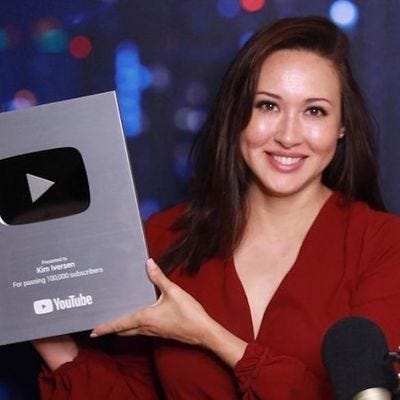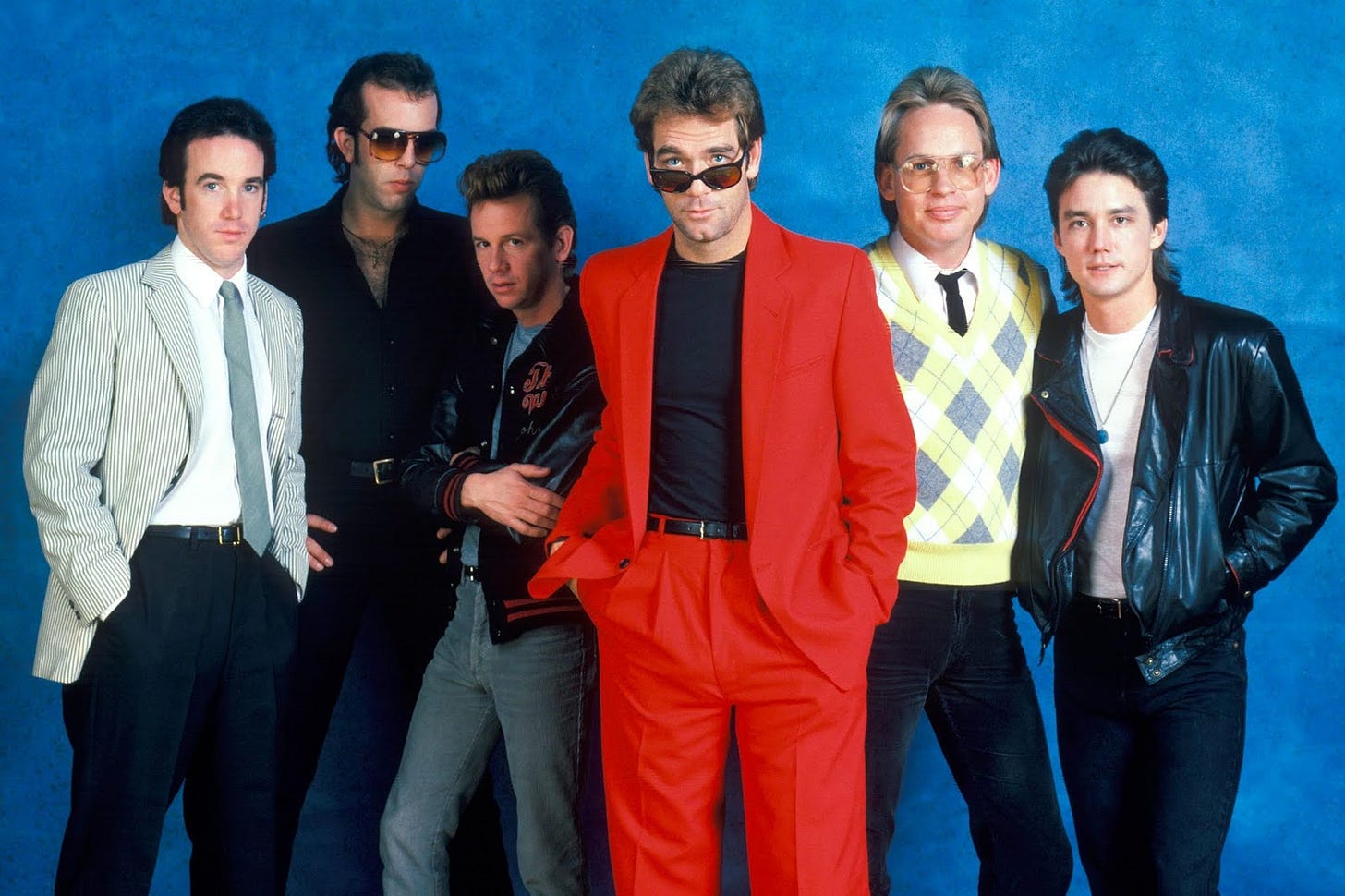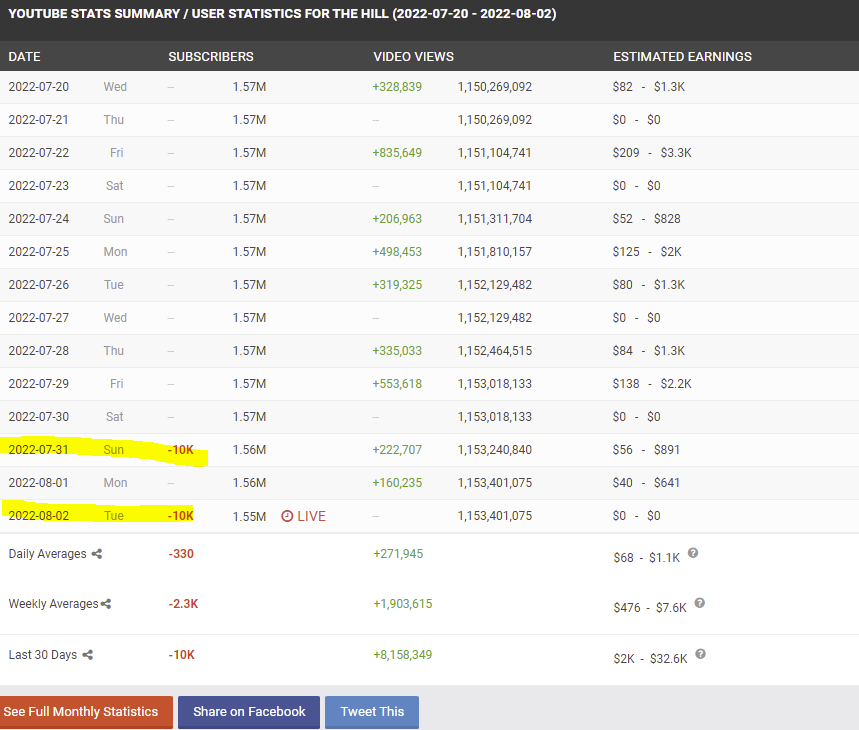
Following the advent of film in the 1920s, countless people flocked to Hollywood in hopes of striking it rich in the Hollywood Gold Rush.
Eventually, the silent film era gave way to “Talkies,” and the movie industry exploded.
Then we hit another technological milestone as television took its place in world history, where potential celebs found new opportunities.
In addition to performers, journalists also had a chance to get in on the action.
Before “The Boob Tube” arrived, people got their news from the papers or newsreels that appeared before feature films to inform people about current events, such as the status ‘over there’ during WW2.
But it wasn’t long before the news relocated from the public cinema to private living rooms.
Richard Hubbell was the first anchor to take to the silver screen in 1941 with his 15-minute show simply called Richard Hubbell and the News.
Not to be confused with Huey Lewis and The News.

As television became ‘hip to be square,’ well-known names such as Walter Cronkite and Dan Rather later became role models for aspiring broadcasters.
But to pursue a career in Hollywood or television, one needed connections.
Not anymore.
Today, anyone can stream or record commentary, music, or cooking shows with little more than a cell phone and internet signal.
Now viewers decide what goes viral, not networks, and creators and consumers take advantage of these alternative platforms to escape the corporate censorship that plagues modern journalism and entertainment.
Perhaps the most famous example of this is Joe Rogan’s podcast, The Joe Rogan Experience, which regularly brings in 11 million viewers and listeners per episode.
For context, in June, CNN averaged about 654,000 viewers per night, probably mostly comprised of nursing home day rooms and airports.
But with new opportunities comes new responsibility, and these new online personalities must constantly question their integrity lest they end up like the mainstream.
To win the culture war, independent journalists and commentators must make tough ethical decisions, which can mean quitting a good job.
And that’s exactly what Kim Iversen did recently when she walked away from The Hill’s Rising.
Audio to Video

Iversen started her college career in law at the University of California-Davis but switched to broadcasting after the microphone attracted her more than textbooks.
After graduation, she served in other radio roles and briefly did freelance TV work in New York City.
The UC alum returned to radio in Lafayette, Indiana, for work and later got a job at station Q96 a few miles down the road in Champaign, Illinois, where she hosted a show that primarily addressed women’s issues but later gained popularity after drawing male and female listeners.
In 2013 the up-and-coming radio personality joined Premiere Radio Networks and co-hosted “The Rendevouz with Simon and Kim,” which covered relationships and social issues.
Several years later, Iversen left the show to host “Kim Out Loud” to focus on social policies that impacted everyday people.
This is how she built her following.
In 2021 the radio vet joined Rising, The Hill’s YouTube channel that takes a traditional news-style approach with three commentators who each offer a daily “Radar,” a short uninterrupted spiel that provides news and opinions on chosen topics.
After each Radar, the group openly discusses and provides their take.

Since Nexstar Media Group owns The Hill, a Washington DC-based newspaper, many people thought Iversen would stop speaking her mind and become just another establishment media shill.
I promised the viewers that, though I was working on a corporately owned media show, I wasn’t being censored or held back in any way, and I wouldn’t be there if I was. -Kim Iversen
And that quickly became clear as she regularly spoke out against policies and mainstream media misinformation surrounding CV response, vaccinations, and the overall establishment, particularly Dr. Fauci.
This earned her the title of “conspiracy theorist” among people that can’t think for themselves.
As the pandemic response and vaccinations, in general, became Iversen’s topic of choice, everyone knew that it would be her dream come true to interview Fauci.
But Rising leadership left her out when they had the chance to make that dream come true.
Here’s what happened.
Fauci Interview

When Iversen discovered Fauci would be on the show a couple of weeks ago, she was ecstatic.
She could finally ask the man to his face the many questions she had, such as why he pushed for mRNA vaccines when they didn’t end the pandemic.
But The Hill producers told Fauci’s team that co-contributors Robby Soave and Batya Ungar-Sargon (shown above) would interview Fauci instead.
Producers used the excuse that since the team scheduled the interview for a time of day when Iversen would not be present, they didn’t think to ask her.
But considering that Fauci was the guest in question, it seems odd that the producers wouldn’t at least ask Iversen if she would be willing to switch up her schedule for a day to make this dream interview happen.
So Iversen told her producers to go back to Fauci’s team and tell them she would join the interview, and if they refused, they would write a segment about Fauci chickening out.
Iversen assured the Rising team that allowing the interview to go on without her would violate viewers' trust.
But the producers caved.
The Hill said they would move forward with the interview without Iversen, and she had to make an integrity call.
Kim knew if she continued with Rising, she could no longer truthfully say that she wasn’t being censored or limited.
So she quit a job that benefited her pocketbook and overall exposure.
Subscriber Fallout

After Iversen walked away from Rising, many viewers followed.
According to Social Blade, about 20,000 people hit Rising’s unsubscribe button in the days following her exit.
Conversely, Iversen’s channel gained about 43,000 new YouTube followers.
The Hill obviously saw that being truthful and critical of the mainstream narratives attracted viewers, and Kim provided that.
So why wouldn’t they ensure she interviewed Fauci?
The conversation would have drawn many viewers and likely more subscribers.
In short, they left Kim out because they chose access over integrity.
The Hill had an opportunity to host a high-profile figure, and they were delicate in handling it.
Rising producers knew that of all contributors, Iversen would be the one that viewers would expect to ask the more challenging questions.
But decision-makers didn’t want to lose the opportunity to have Fauci on their channel.
And to mess that up by insisting on Iversen being a part of the interview could mean losing out on that access.
So producers threw the dice.
And what shook out?
Well, they took a loss.
While Rising got their Fauci interview, it sits at about 58,000 views as I write this.
On the other hand, the video where Iversen tells her story of quitting comes in at about 715,000.
Also, Iversen’s last few videos as I write this average about 118,000 views, while The Hill averages about 10,000 for recent videos.
Rising gained popularity because they hired someone that relates to the people and tells it like it is.
But they just couldn’t help themselves.
They chose high-profile access over nurturing and encouraging journalistic integrity, the same behavior that caused the public to turn away from mainstream media.
As for Robby and Batya’s interview, they asked questions that were tougher than CNN's underhand pitches, but if Fauci’s team hand-picked the interviewers, I wouldn’t be surprised if they filtered the questions as well.
Here’s what a few people commented about the watershed broadcast:

Yet as expected, Fauci lied to the viewers by saying he never recommended lockdowns.
Here’s a clip of Fauci on “All In” telling the host, “I totally agree” with keeping bars and restaurants closed, and here are several other instances of Fauci agreeing with lockdowns.
So Kim Iversen might be limited to her channels for the time being, but the numbers show what the viewers really want: integrity.
You can find Kim’s commentary on the following platforms:
“Viewer trust is the most important thing, it’s the only thing, and sometimes, to keep your integrity, you have to make a tough choice.” -Kim Iversen





